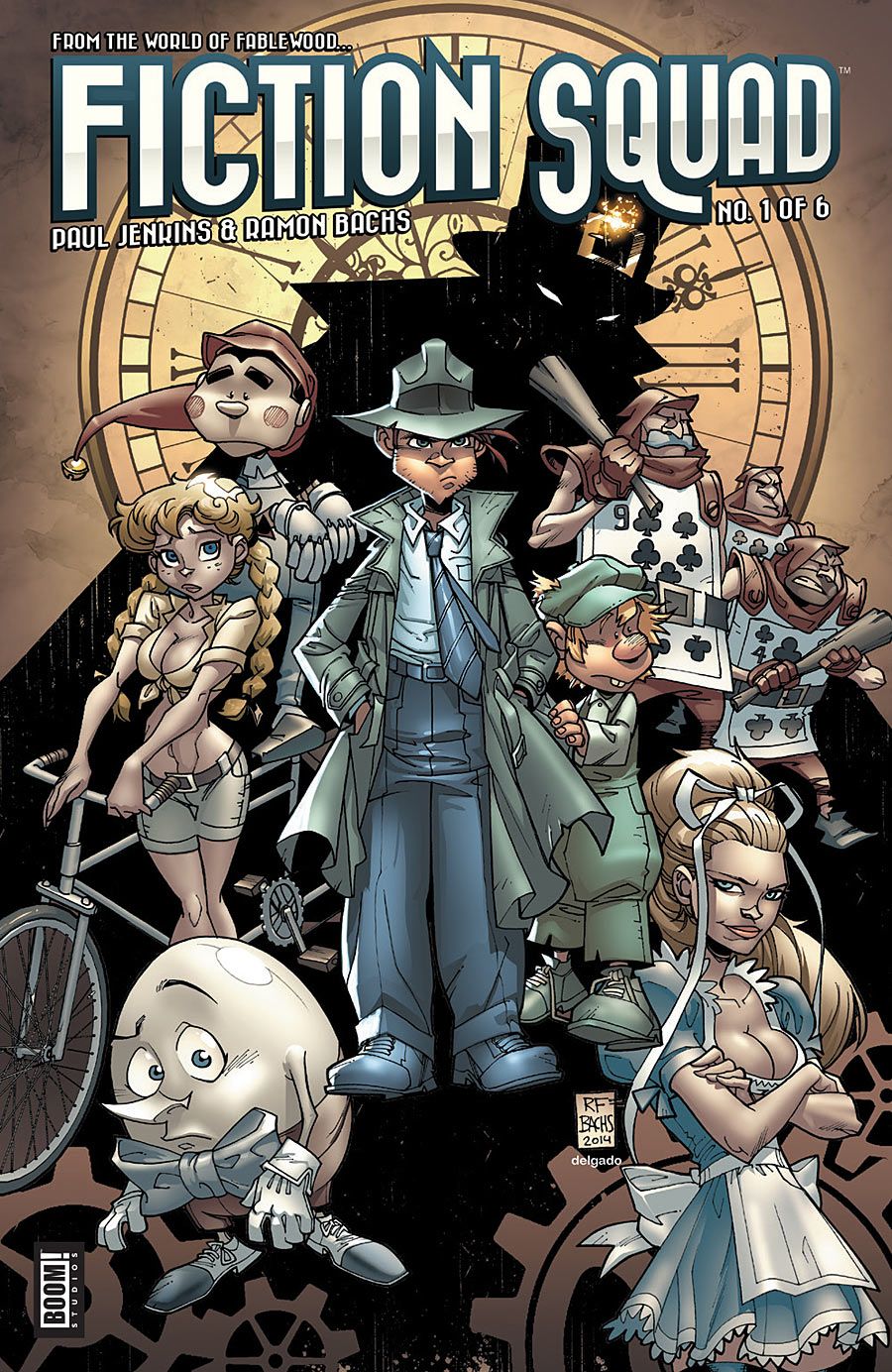World building based on children's stories and fairy tales is a clever idea that's already been successfully and superbly done in various media, so it takes an especially ingenious twist to mine something a little different out of this notion. Writer Paul Jenkins has done exactly that with a brilliant new spin, and a deceptively simple one, in "Fiction Squad" #1, whimsically drawn by Ramon Bachs and wonderfully colored by Leonardo Paciarotti. Jenkins' ridiculously uncomplicated premise: every nursery rhyme is a crime scene.
Deep down, everyone kind of knows that already, but parents especially are a little hesitant to tell their young children that Goldilocks unlawfully entered a family residence, or that The Big Bad Wolf committed felonious destruction of multiple properties. Jenkins and Bachs aren't afraid to point this out to anybody, however, and in fact wrap their story around this central point. The corruption that seems to run deep in the village of Rimes, home to all of these classic childhood stories, kind of hammers home the idea that many of these beloved children's tales have an underlying dark nature that's not immediately discernable, at least to younger kids.
The world of fiction is Jenkins' literal landscape, and his world is divided into nations where each comprises a different genre. Children's Stories is an especially troubled genre, as Jenkins points out that Humpty Dumpty, who had a great fall, and Jack and Jill, who fell down a hill, are all victims of mysterious accidents; falls that appear to have happened by chance but whose apparent proximity to each other raises suspicion that there might have been a sinister and deliberate connection. This is the kind of dissection and assimilation of such traditional stories, which are often told but rarely explored, that's the hallmark of this fascinating issue. These are among the incidents that The Fiction Squad needs to investigate.
The squad at this point, at least for now, is largely Detective Frankie Mack, the prototypical hard-boiled private eye (speaking of eggs) whose life in the Crime genre consisted of one unremarkable short story. He finds himself investigating crimes in another genre now, and his narrative is straight out of a pulpy detective thriller, because, well, he is straight out of a pulpy detective thriller. Jenkins perfectly captures and effortlessly blends two very different narrative styles; the comic's introductory and beautifully poetic once-upon-a-time opening, which gives way to Mack's delightfully stereotypical gumshoe monologue that's so cleverly flavored with references to countless timeless characters from equally timeless lore.
Bachs populates the story's backdrop with countless references to these timeless characters, and his detail and enthusiasm bleed out of every page. It's as though with every character he includes, he challenges Jenkins to throw in a reference, which he magnificently does wherever possible. There's even a dog named Bingo, and yes, he has to spell his name-o. Bachs crams so many such references into the pages that readers can't help but stop to try and take it all in; much like they might have done with a children's book as kids. Jenkins and Bachs evoke that same kind of wonderment here, yet with a decidedly dark and edgy feel. Not every character is recognizable, but it's fun to try and identify them anyway.
Paciarotti brings a full color palette to the entirety of the issue, but understands one very important aspect: this world of children's stories is one full of graft and corruption, so he avoids any excessively bright colors. There are plenty of beautiful contrasts throughout, and the tones in the brief flashback to Mack's days in the crime genre are appropriately muted. The issue is colorful without being garish, and that balance is what makes it so stunningly attractive. The colors nicely compliment Bachs' deliberately cartoonish style, which is also appropriate for the comic; after all, how realistic can Humpty Dumpty really look, anyway?
Another wonderful aspect to the comic is Jenkins' frequent hilarious lines and turns of phrase, like Alice's gang, which includes the Mad Hatter, being named the Tea Party, giving that term yet another disparate meaning. With such a dense and diverse backdrop, Jenkins and Bachs manage to conjure up the same kind of fascination that many had when they first heard these stories. Like Tim Burton did with the holiday-blending "Nightmare Before Christmas," the creators of "Fiction Squad" #1 blend an array of beloved childhood stories, give them a fresh slant with a definitely grown-up feel, and tell a story that's absolutely fantastic.

